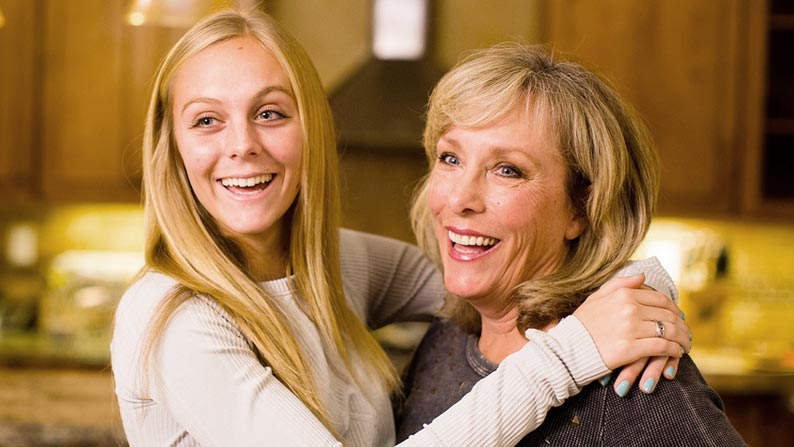“The greatest gifts you can give your children are the roots of responsibility and the wings of independence.” — Denis Waitley
Giving birth to my children was an unforgettable milestone in my life, one I prepared for carefully and thoroughly. I read books, took classes, and talked to friends to learn what to expect in this epic transition. Still, I approached motherhood with cautious optimism. Would I adapt quickly to my new role, and would I do it well?
Many people, like me, prepare feverishly for the responsibility of a new baby, soaking up all the advice and knowledge we can. Then, as our kids age, we switch to more of a “take it as it comes” approach. But just as a child’s arrival is a transition, so is a child’s departure from the nest. When I helped my daughter prepare for college, I suddenly realized that sending her off to school was not as simple as packing a suitcase and loading up the car. The milestone was an emotional and stressful one, and brought back the the feeling of uncertainty we faced the day she arrived. I second-guessed myself. Did I prepare her well? Did I impart the necessary values to my daughter? I would soon find out.
The reality that my daughter would be one of 10 girls living in a space designed for seven, and that she would be responsible for her own food, hit her quickly. She immediately realized that the comforts and privacy of home were missing. In a moment of stunned awareness, she said to me, “Mom, I’ve gone from riches to rags!”
That, in itself, was a learning experience for her — and it didn’t stop there. One day, I received a picture of a washing machine dial with a question: “How do I turn this on?” Then there was the dilemma of how to turn a can of soup into a meal, and where to put the butter on a grilled cheese sandwich. In the course of a few short texts, I realized that I had failed to teach my daughter basic survival skills. I learned that I shouldn’t assume she was completely prepared for independent living. And while I could handle her figuring out how to cook and do laundry by trial and error, I didn’t want her to manage her finances without guidance for growth and success.
There is no “one size fits all” when it comes to a financial strategy for students. As a financial planner, I assumed the role of mentor, rather than mother, when it came to the management of my daughter’s finances. I wanted to foster her ability to reason and make good choices, knowing full well that mistakes would be made along the way.
We worked together to establish a realistic budget for her time at school. Though we talked about expenses prior to her departure, we couldn’t solidify our estimates until she was into the college routine, so we reevaluated and refined after she started.
My objective throughout all of our financial discussions was to make sure we were on the same page. I wanted to be clear about allowable expenses, who would pay what, the disbursement of money, and how decisions regarding her finances would be handled. And as her financial mentor, I proposed a graduated shift of responsibility over the course of her college education.
During the first year, I agreed to be responsible for overseeing and paying all of her expenses. I gave her a credit card to use only on designated, budgeted expenses. We agreed to talk about finances monthly so that we could both keep tabs on how much she was spending and if it was within our agreed budget.
I designed our collaborative plan as a teachable process, with my daughter taking on additional responsibility each year. She would assume responsibility for paying 25 percent of her bills during her second year of college, 50 percent of her bills during the third year, and 100 percent of her expenses in her final year. I wanted my role to evolve from mother, to mentor, to advisor; and for my daughter to evolve into a self-reliant woman confident in her ability to manage her finances on her own.
The start of my daughter’s college career was as much a milestone for me as it was for her, and we both have a lot to learn as we grow into new roles. Agreeing on a financial plan does not mean that it will go accordingly. It means there is a vision and an opportunity for growth, and I value that. With each new step, I take a deep breath. I hope that I have given her the roots of responsibility and that she is ready for the wings of independence.

